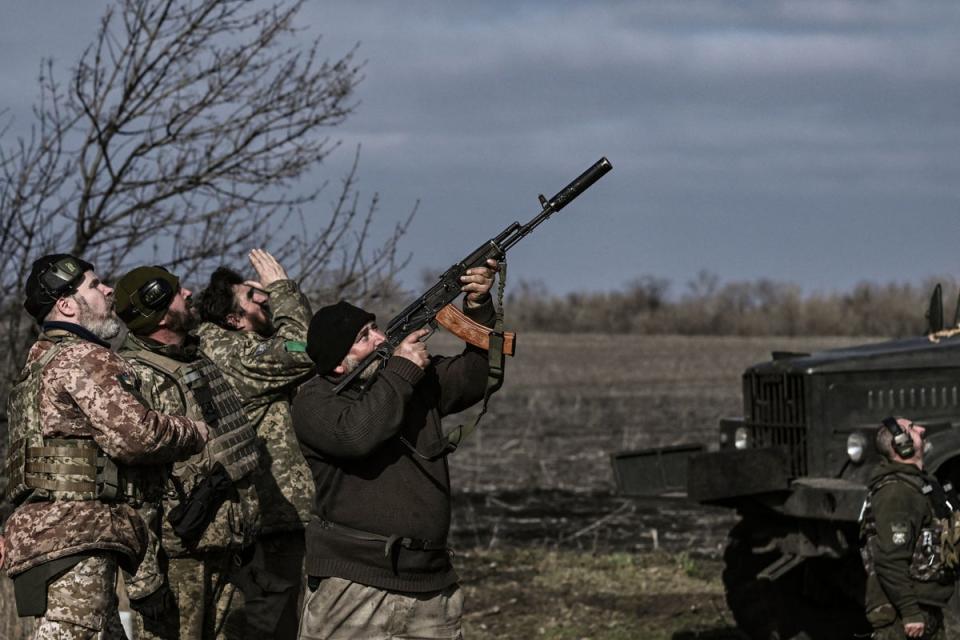Russia’s Wagner mercenaries ‘running out of steam’ as Ukraine plans counteroffensive

Russia’s Wagner mercenaries are “running out of steam” and Ukraine will soon launch a counteroffensive, a military official has said.
Commander Oleksandr Syrskyi claimed that the group, who have been at the front of Moscow’s assault on eastern and southern Ukraine, are losing “considerable strength” amid the fight for Bakhmut.
The Ukrainian military also claimed 1,020 Russian troops had been killed in the past 24 hours after unsuccessful attacks on Lyman, Avdiivka, Marinka and Shakhtarsk.
Mr Syrskyi said his forces would soon begin a counteroffensive after withstanding Russia’s winter campaign.
Saying the mercenaries are “losing considerable strength and running out of steam,” he added: “Very soon, we will take advantage of this opportunity, as we did in the past near Kyiv, Kharkiv, Balakliya and Kupiansk,” listing Ukrainian counteroffensives last year that recaptured swathes of land.
Russian forces have for months been trying to capture Bakhmut as they seek to extend their control over eastern Ukraine.

There was no immediate response from Moscow to suggestions its forces in Bakhmut were losing momentum, but Wagner boss Yevgeny Prigozhin has issued statements in recent days, warning of a Ukrainian counterassault.
At a Ukrainian-held village west of Soledar, on Bakhmut’s northern outskirts, the intensity of the Russian bombardment noticeably lessened from two days earlier.
“It was really hot here a week ago, but in the last three days it has been more quiet,” a Ukrainian soldier told Reuters. “We can see this in the enemy’s air strikes. If before there were five-six air raids in a day, today we had only one helicopter attack.”
An apparent slowdown in Russian attacks in Bakhmut could mean that it is diverting resources and troops elsewhere. Earlier this week, the UK confirmed that Russia had made gains further north, regaining the upper hand in the fight for Kreminna.
It has also been more active in the northern Kharkiv and Luhansk regions, alongside the central Zaporizhzhia and southern Kherson regions.
Meanwhile, president Volodymyr Zelensky warned that the war could last years without military aid, again urging Europe to increase the speed of weapon supplies.
“If Europe waits, the evil may have time to regroup and prepare for years of war,” he said in a video address to European Union leaders, calling for long-range missiles, ammunition and modern aircraft. Mr Zelensky also called for additional sanctions to be placed on Russia.

The EU summit approved a plan agreed by foreign ministers to send 1 million artillery shells to Ukraine over the course of the next year. Global food security and sanctions on Russia were similarly discussed.
The UK has committed to supplying armour-piercing munitions containing depleted uranium, something Mr Putin remarked would necessitate a response from Russia as the weapons had a “nuclear component”.
Slovakia similarly confirmed on Thursday that it had donated the first four MiG-29 jets pledged to Ukraine, with the rest expected to arrive in the coming weeks.


